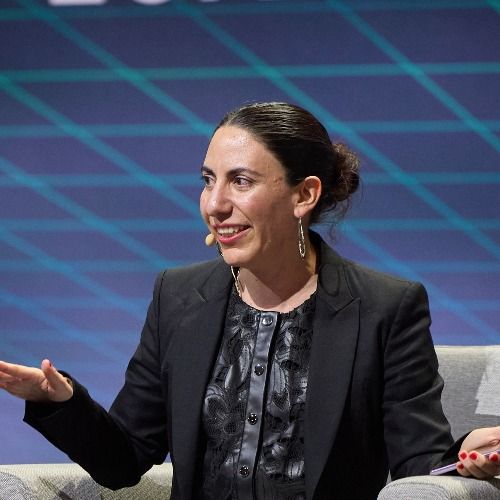Episode 73
What Separates Sustainable Neobanks From Those That Fail To Reach Profitability? | Brian Muse-McKenney, CRO at Episode Six
With 400 Neobanks globally raising $300 billion but only a few achieving profitability, the industry faces a critical question about sustainable business models.
In this episode, I speak with Brian Muse-McKenney, Chief Revenue Officer at Episode Six, and we answer the big question: What separates sustainable Neobanks from those that fail to reach profitability?
Brian brings deep expertise from over 16 years in global payments, having led PayMe to become Hong Kong's #1 payments app and now helping fintechs build modern payment products at global scale in Episode Six. He shares insights on the fundamental shift from growth obsession to economic discipline and reveals the specific metrics and strategies that actually drive profitability.
We explore the critical importance of unit economics over vanity metrics, the power of the 80/20 rule in customer focus, and why multi-product revenue strategies are essential beyond interchange fees. We also discuss the infrastructure decisions that can make or break scaling economics, the culture shifts needed for sustainable growth, and practical frameworks for identifying and nurturing profitable customer segments.
🔑 Key Highlights:
- The shift from growth at all cost mentality to disciplined economics in Neobank’s strategy
- Why LTV matters more than downloads and monthly active users
- How the 80/20 rule transforms customer acquisition into profitable growth
- The infrastructure partnerships that enable or destroy unit economics at scale
- Why saying "I was wrong" creates winning cultures that drive profitability
Follow for more discussions on building FinTech products with customer and commercial impact and to stay updated on the latest episodes.
Socials
👉 Follow Brian Muse-McKenney:
LinkedIn: https://www.linkedin.com/in/brian-muse-mckenney-1423a21aa/
Website: https://episodesix.com/
👉Follow Monica:
LinkedIn: https://www.linkedin.com/in/monicamillares/
YouTube: https://www.youtube.com/@moni_millares
Timestamps
We cover:
[00:00:00] Neobanking profitability state : 400 companies, 15 profitable
[00:02:00] From growth at all costs to economic discipline mindset shift
[00:03:00] Unit economics that actually matter for sustainable growth
[00:09:00] Revenue diversification beyond interchange fees
[00:11:00] FX, lending, and subscription models that drive margins
[00:16:00] The 80/20 rule: Why power users beat customer acquisition
[00:19:00] Customer research strategies for identifying profitable segments
[00:24:00] Low-hanging fruit for struggling Neobanks
[00:26:00] The courage to say "I was wrong" and cut unprofitable customers
[00:29:00] Psychological safety and winning culture fundamentals
[00:32:00] Global profitability patterns: Asia vs Europe vs North America
[00:39:00] The 10X innovation doctrine for market differentiation
[00:45:00] Infrastructure partnerships that enable profitable scaling
[00:51:00] Three key takeaways for sustainable Neobank success
Search Questions
What separates profitable neobanks from failing ones?
How many neobanks are actually profitable in 2025?
What unit economics metrics matter most for neobanks?
How to build revenue beyond interchange fees in fintech?
Why do most Neobanks fail to reach profitability?
What is the 80/20 rule for Neobank customer growth?
How to identify profitable customer segments in fintech?
What infrastructure decisions affect Neobank profitability?
How to create winning culture in fintech startups?
What revenue streams work best for Neobanks ?
How to calculate customer acquisition cost for fintech?
What gross margins should Neobanks target by product?
How to build multi-product strategy for sustainable growth?
When should Neobanks cut unprofitable customers?
What psychological safety techniques work in fintech teams?
How do profitable Neobanks differ globally by region?
What lending products drive the highest margins for Neobanks?
How to build hypothesis-driven testing culture in fintech?
What subscription models work for digital banking?
How to negotiate better infrastructure partnerships for scale?
#NeobankProfitability #FinTechEconomics #UnitEconomics #SustainableGrowth #FinTechStrategy
Disclaimer: This episode does not constitute professional nor financial advice and does not represent the opinion nor views of my current, past or future employers. The guest has agreed to record and release our conversation for the use of this podcast and promotion in social media.

